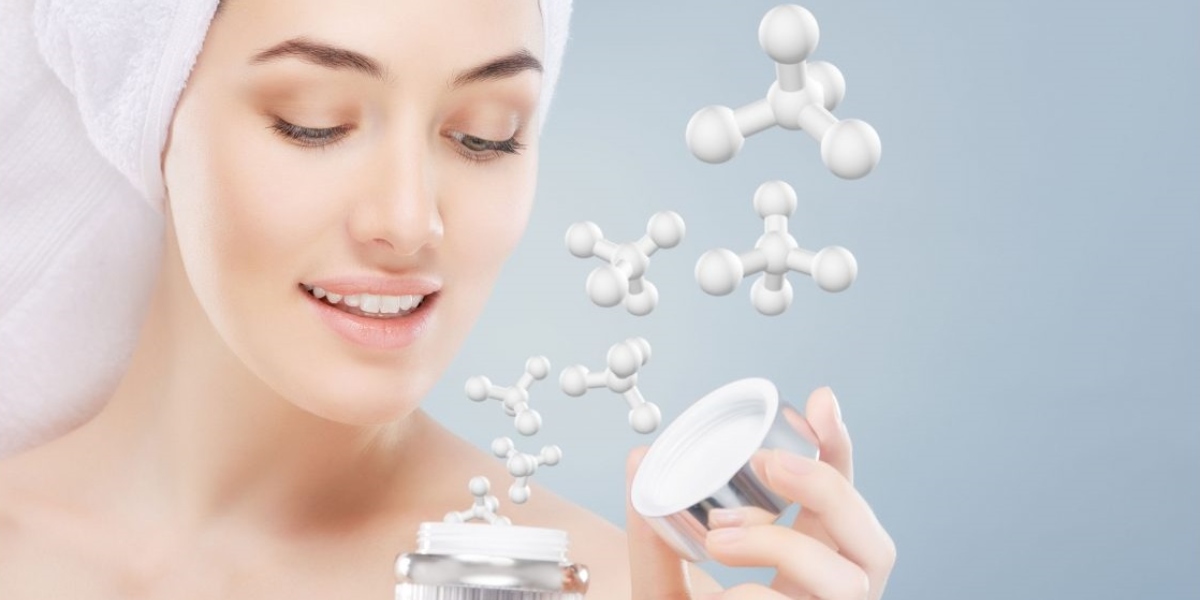In the quest for youthful, vibrant skin, the role of the best anti-aging ingredients cannot be overstated. From the pioneering benefits of vitamin C and E to the moisturizing prowess of hyaluronic acid, these components have proven to be essential in combating the visible signs of aging. With the skincare industry continuously evolving, identifying which ingredients yield the most impactful results is crucial for anyone looking to preserve their skin’s vitality and firmness. Moreover, the integration of SPF and antioxidants into daily skin routines offers a shield against harmful UV rays and environmental damage, further emphasizing the importance of these key ingredients in maintaining skin health and hydration.
This article delves into the top 10 best anti-aging ingredients, including natural options that have garnered attention for their efficacy and safety. Highlighted ingredients such as retinoids, peptides, niacinamide, and ceramides represent the forefront of anti-aging innovation, offering solutions for enhanced skin firmness and hydration. Additionally, the discussion extends to alpha hydroxy acids, growth factors, and the indispensable role of sunscreen in preventing premature aging. Through a combination of anti-aging serums and creams enriched with these essential components, individuals can significantly improve the appearance and resilience of their skin, paving the way to a youthful and radiant complexion.
Table of Contents
Vitamin C
Vitamin C, a powerhouse anti-aging ingredient, has garnered acclaim for its multiple skin benefits. This section explores how Vitamin C combats aging, the best products available, and essential usage tips to maximize its effectiveness.

How Vitamin C Fights Aging
Vitamin C is celebrated for its potent antioxidant properties, which protect the skin from the damaging effects of UV light and free radicals. These radicals contribute to premature aging by breaking down collagen and elastin, vital components for maintaining skin’s elasticity and firmness. Regular application of Vitamin C can significantly reduce the appearance of wrinkles and fine lines by promoting collagen production and reducing pigment production, which in turn lightens dark spots and evens out skin tone.
Best Vitamin C Products
For optimal results, it is crucial to choose the right Vitamin C formulation. Products should ideally contain L-ascorbic acid, known for its efficacy in penetrating the skin barrier and delivering antioxidant benefits directly to the dermal layers. However, due to its instability, Vitamin C formulations are often paired with stabilizers such as vitamin E or ferulic acid. These combinations enhance the product’s stability and efficacy. For those with sensitive skin, derivatives like magnesium ascorbyl phosphate offer a gentler alternative, providing similar benefits without the irritation.
Vitamin C Usage Tips
Adding Vitamin C to your skincare regimen demands thoughtful deliberation. It is most beneficial when applied in the morning to clean skin, followed by a moisturizer and SPF to protect against sun exposure, which can degrade the vitamin. Starting with a lower concentration and gradually increasing the application frequency allows the skin to adjust without irritation. Additionally, ensuring the product is stored correctly, away from light and air, helps maintain its potency. For those new to Vitamin C, conducting a patch test is recommended to avoid potential adverse reactions.
By adhering to these guidelines, individuals can effectively harness the anti-aging properties of Vitamin C, leading to a healthier, more youthful complexion.
Retinoids
Retinoids, derived from vitamin A, are celebrated for their profound impact on skin health, particularly in anti-aging treatments. These powerful compounds are available in various forms, each tailored to address specific skin concerns.
Types of Retinoids
Retinoids encompass both natural and synthetic derivatives of vitamin A. Natural retinoids, such as retinol and retinaldehyde, are commonly found in over-the-counter products and are suitable for general skin maintenance and minor aging concerns. Synthetic versions, like tretinoin, adapalene, and tazarotene, are typically more potent and are used in prescription-strength treatments for more severe skin conditions such as acne and psoriasis.
Anti-Aging Effects of Retinoids
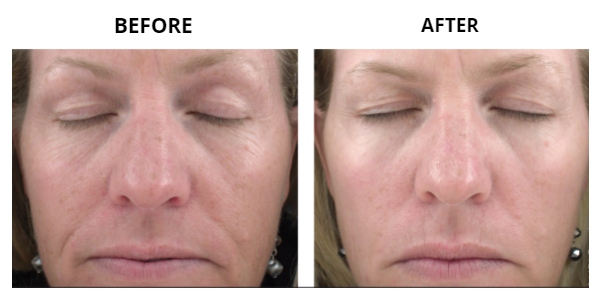
The efficacy of retinoids in anti-aging skincare is primarily due to their ability to promote cell turnover and boost collagen production. This results in diminished fine lines and wrinkles, improved skin texture, and a reduction in hyperpigmentation and discoloration. Tretinoin, the first retinoid approved for treating photoaging, is particularly noted for its dual action of blocking collagen-degrading enzymes and enhancing collagen synthesis, which revitalizes the skin’s overall appearance.
How to Incorporate Retinoids
Introducing retinoids into a skincare routine should be done gradually to minimize irritation. Starting with a lower concentration and applying it every other night can help the skin adjust. It’s crucial to use retinoids only at night due to their increased sensitivity to sunlight and always follow up with a broad-spectrum sunscreen during the day. For sensitive skin types, consulting with a dermatologist and possibly starting with a milder retinol before progressing to stronger retinoids can be beneficial.
By understanding the types and benefits of retinoids and carefully integrating them into skincare practices, individuals can effectively harness their anti-aging properties for clearer, more youthful skin.
Hyaluronic Acid
Hyaluronic acid, a naturally occurring glycosaminoglycan, is essential for maintaining skin hydration and structure. It is renowned for its ability to retain up to 1000 times its weight in water, making it a critical ingredient in skincare for promoting a plump and hydrated appearance.
Hydrating Power of Hyaluronic Acid
Hyaluronic acid excels in preventing transepidermal water loss, ensuring that moisture remains locked within the skin. This capability not only helps to reduce the appearance of fine lines and wrinkles but also supports the skin’s elasticity and softness. Additionally, it has been found effective in wound healing and improving skin texture due to its inflammation-reducing properties.
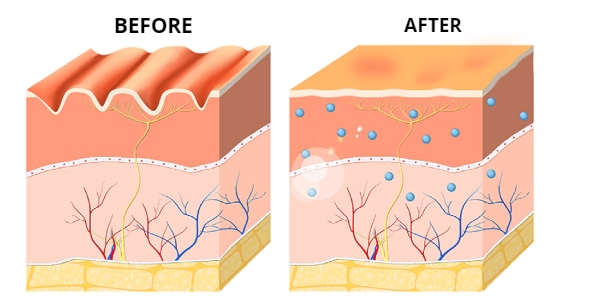
Top Hyaluronic Acid Serums
Among the top choices for hyaluronic acid serums, The Ordinary’s Hyaluronic Acid 2% + B5 stands out for its affordability and effectiveness, containing multiple forms of hyaluronic acid to penetrate different layers of the skin. Another excellent product is the SkinCeuticals Hyaluronic Acid Intensifier, known for enhancing skin’s hydration and texture. For those seeking a luxurious option, Alastin’s HA Immerse Serum offers a formula that not only delivers intense hydration but also encourages the skin to produce its own hyaluronic acid.
Hyaluronic Acid Application Guide
To maximize the benefits of hyaluronic acid, it should be applied to damp skin to help seal in moisture. A common method involves using a serum form, pressing a few drops into the face after cleansing. Following up with a moisturizer ensures that the hyaluronic acid draws and retains moisture from the product applied over it, enhancing overall hydration. For best results, integrating this routine twice daily, morning and night, can significantly improve skin’s moisture levels and overall appearance.
Peptides
Peptides, short chains of amino acids, are fundamental in skin care for their role as building blocks of proteins like collagen, elastin, and keratin. These proteins are crucial for maintaining the skin’s smoothness, elasticity, and overall structure. Acting as messengers, peptides can instruct skin cells to produce more collagen and elastin, enhancing the skin’s appearance and resilience.
How Peptides Work

Peptides function by signaling skin cells to regenerate and repair. They can prompt the skin to produce more collagen and elastin, which are vital for maintaining youthful skin. Additionally, peptides can reduce inflammation and facilitate wound healing, making them a versatile component in anti-aging skincare.
Best Peptide-Infused Products
Products containing peptides vary, with some notable ones including No7’s Matrixyl 3000+, which combines multiple peptides to enhance collagen and fibrillin production. Another recommended product is Medik8’s Liquid Peptides, which uses drone-targeted peptide delivery to firm and plump the skin effectively. These products are particularly beneficial for skin showing signs of aging and decreased protein production.
Peptide Skincare Routine
Incorporating peptides into a skincare routine is beneficial for all skin types. It is advisable to apply peptide-infused products twice daily—once in the morning and once at night. For optimal results, peptides should be layered under moisturizers and SPF to enhance their efficacy and protect the skin from environmental factors. Peptides also pair well with other skincare ingredients like antioxidants and hyaluronic acid, enhancing their benefits.
By integrating peptides into their skincare routine, individuals can address various skin concerns, from wrinkles and uneven skin tone to loss of firmness and hydration. This makes peptides a crucial ingredient for maintaining a youthful, radiant complexion.
Niacinamide
Niacinamide, also known as vitamin B3, is a multifaceted skincare ingredient celebrated for its extensive range of benefits. It stands out as an essential nutrient in skincare, offering solutions for various skin concerns.
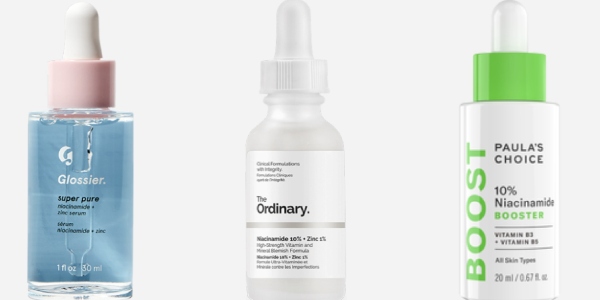
Niacinamide’s Skin Benefits
Niacinamide excels in enhancing skin health through several mechanisms. It is known for its ability to strengthen the skin’s barrier, regulate oil production, and reduce pore size, making it particularly beneficial for oily and acne-prone skin types. Additionally, its potent anti-inflammatory properties help soothe the skin and reduce redness and blotchiness. Niacinamide also boosts skin hydration and aids in diminishing the appearance of fine lines and wrinkles by supporting collagen production. Furthermore, it effectively treats hyperpigmentation by preventing the transfer of pigment to the skin’s surface, leading to a more even skin tone.
Niacinamide Product Recommendations
For those seeking to incorporate niacinamide into their skincare routine, several products stand out. The Ordinary’s Niacinamide 10% + Zinc 1% is highly recommended for its ability to control sebum and minimize pores. La Roche-Posay’s Niacinamide 10 Serum is another excellent choice, particularly for brightening the skin and evening out skin tone with its high concentration of niacinamide. For a more luxurious option, SkinMedica’s Lytera 2.0 Pigment Correcting Serum combines niacinamide with other lightening agents to enhance its skin-brightening effects while soothing the skin.
Niacinamide Usage Tips
When incorporating niacinamide into a skincare regimen, it is advisable to start with a lower concentration to assess skin tolerance and gradually build up as needed. Niacinamide is versatile and can be used both morning and night. It pairs well with other skincare ingredients such as hyaluronic acid, antioxidants, and even retinoids, making it a valuable addition to any routine. For best results, niacinamide should be applied after cleansing and toning but before moisturizing to maximize its benefits.
By integrating niacinamide into their skincare routine, individuals can address a wide array of skin issues, enhancing both the health and appearance of their skin, thereby achieving a more youthful and radiant complexion.
Alpha Hydroxy Acids
Alpha Hydroxy Acids (AHAs) are water-soluble acids derived from sugary fruits and other natural sources. They are key ingredients in many skincare products, ranging from daily serums to more intensive chemical peels, due to their effective exfoliating properties.
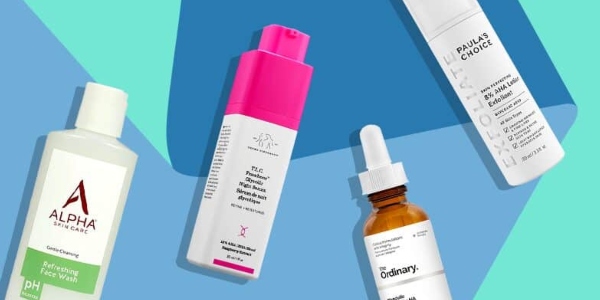
Types of AHAs
AHAs include glycolic acid from sugar cane, lactic acid from milk, and citric acid from citrus fruits, among others. Each AHA has unique properties; for example, glycolic acid is known for its deep exfoliation capabilities, while lactic acid is milder and helps in moisturizing and lightening the skin.
AHA Anti-Aging Benefits
The primary benefit of AHAs is their ability to exfoliate the skin by loosening the glue-like substances that hold the dead skin cells together. This promotes faster cell renewal, revealing fresher, younger-looking skin beneath. Regular use of AHAs can lead to increased collagen production, reduced fine lines and wrinkles, and a more even skin tone. They also help in treating mild hyperpigmentation and age spots.
How to Use AHAs Safely
To incorporate AHAs safely into your skincare routine, start with a product that has a lower concentration of the acid and gradually increase the usage as your skin adjusts. Always apply AHAs in accordance with the product instructions—typically at night, followed by a moisturizer to mitigate any potential drying effects. Since AHAs can increase skin sensitivity to sunlight, applying a broad-spectrum sunscreen during the day is crucial. For those with sensitive skin, testing the product on a small area before full application is recommended to avoid irritation.
By understanding the types of AHAs and their benefits, and following safe usage practices, individuals can effectively utilize these powerful ingredients to enhance their skin health and achieve a more youthful appearance.
Antioxidants
Power of Antioxidants in Skincare
Antioxidants are crucial in skincare, primarily due to their ability to neutralize free radicals, or reactive molecules that can damage cells. These unstable molecules are produced through normal cellular processes or external stressors like UV radiation and pollution. By mitigating the oxidative stress caused by these free radicals, antioxidants play a significant role in preventing and repairing skin damage. This includes reducing signs of aging such as wrinkles, fine lines, and uneven skin tone.

Top Antioxidant Ingredients
Several key antioxidants are renowned for their skin benefits. Vitamin C, known for its ability to enhance collagen production and mitigate photodamage, is a staple in anti-aging skincare. Vitamin E, another powerful antioxidant, supports skin healing and enhances the efficacy of other antioxidants like Vitamin C. Niacinamide (Vitamin B3) not only reduces inflammation but also improves skin elasticity and tone by accelerating cell renewal. Other notable antioxidants include resveratrol, found in grapes and berries, which protects the skin from environmental stressors and aging.
Antioxidant Product Picks
Incorporating antioxidants into your skincare regimen can be transformative, thanks to products like The Ordinary’s Resveratrol 3% + Ferulic Acid 3%, which combines two potent antioxidants to fight aging and reduce inflammation. CeraVe’s Skin Renewing Vitamin C Serum with Hyaluronic Acid offers a powerful dose of Vitamin C, while The Inkey List’s Q10 Antioxidant Serum uses Coenzyme Q10 to support collagen and elastin production. For a comprehensive treatment, Paula’s Choice Earth Sourced Power Berry Serum includes extracts from various berries and other natural sources, providing a robust antioxidant defense against skin aging.
Sunscreen

Importance of Sun Protection
Sunscreen is essential in any skincare regimen, particularly for its role in protecting the skin from harmful UV rays that cause sunburn, premature aging, and skin cancer. By shielding the skin from UV radiation, sunscreens prevent the breakdown of collagen and elastin, key components that maintain skin’s firmness and elasticity. Moreover, sunscreens mitigate the risk of skin cancer by protecting against both UVA and UVB rays, making them indispensable for maintaining healthy skin.
Best Anti-Aging Sunscreens
The best anti-aging sunscreens combine UV protection with ingredients that address signs of aging. Products like Dermalogica Dynamic Skin Recovery SPF 50 and Alastin HydraTint Pro Mineral Broad Spectrum Sunscreen SPF 36 offer broad-spectrum protection while also enhancing skin’s hydration and elasticity. These sunscreens often contain antioxidants and peptides, which help neutralize free radicals and support collagen production, further aiding in the prevention of fine lines and wrinkles.
Sunscreen Application Tips
To maximize the benefits of sunscreen, it should be applied generously and evenly to all exposed areas of the skin, including often-forgotten spots like the ears, neck, and tops of feet. Sunscreen should be applied 15 minutes before sun exposure to allow sufficient absorption and re-applied every two hours, or more frequently if swimming or sweating. For those with sensitive skin, mineral sunscreens containing zinc oxide or titanium dioxide are recommended as they are less likely to cause irritation.
Ceramides
Role of Ceramides in Skin Health
Ceramides are essential lipid molecules found in the stratum corneum, the outermost layer of the epidermis, making up about 50% of the skin barrier. They play a crucial role in maintaining skin hydration by forming a protective barrier that reduces water loss and prevents dryness. This barrier not only helps retain moisture but also shields the skin from environmental damage and pollutants. Ceramides also enhance skin elasticity and regulate inflammation, which contributes to a more youthful and healthy appearance.
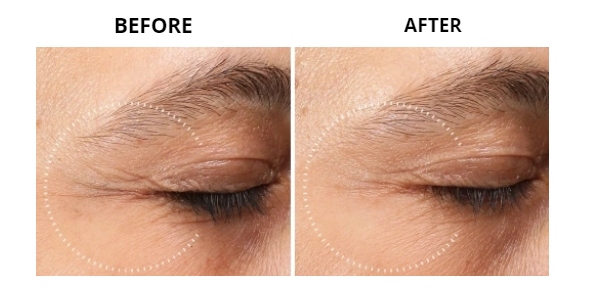
Ceramide-rich Products
A variety of skincare products incorporate ceramides due to their beneficial properties. These include moisturizers, serums, and cleansers that help lock in moisture and strengthen the skin’s barrier. Notable products include CeraVe’s moisturizing lotion, which is enriched with ceramides to hydrate and restore the skin’s barrier, and EltaMD’s PM Therapy Facial Moisturizer, known for its blend of ceramides and niacinamide that improves skin tone and texture. For those seeking a comprehensive solution, Dr. Jart+ Ceramidin Cream combines five different ceramides to intensely nourish and hydrate the skin.
Incorporating Ceramides in Routine
Integrating ceramides into a skincare routine can be done at any step, from cleansing to moisturizing. There is no such thing as “too much” when it comes to ceramides, allowing for their use in multiple products simultaneously. For optimal results, it is recommended to apply ceramide-rich products to damp skin to enhance moisture retention. Regular use of these products can significantly improve skin texture and resilience, making ceramides a versatile and effective ingredient in combating the visible signs of aging and maintaining skin health.
Growth Factors
Understanding Growth Factors
Growth factors, also known as cytokines, are proteins that are vital for repairing cellular damage and maintaining skin homeostasis. These naturally occurring substances are produced by skin cells like fibroblasts, keratinocytes, and melanocytes. They function by sending signals that promote cell growth and healing, making them key components in anti-aging skincare.
Growth Factor Skincare Benefits
The primary role of growth factors in skincare is to enhance collagen and elastin production, which are crucial for maintaining skin firmness and elasticity. These proteins can significantly reduce the appearance of fine lines and wrinkles, improve skin texture, and aid in the healing of damaged skin barriers. Additionally, they are known for their ability to help with hyperpigmentation and post-acne inflammation. Due to their gentle nature, growth factors are suitable for a wide range of skin types, including those with sensitivities like eczema.
Top Growth Factor Products
Among the leading products in this category, SkinMedica’s TNS Advanced + Serum stands out with its dual-chamber formula that blends over 450 naturally sourced growth factors with a mix of botanicals, peptides, and marine extracts. Another notable product is the Recovery Complex from SkinMedica, which is known for its high concentration of growth factors that gradually improve skin texture and tone. These products are particularly effective in enhancing natural collagen production, targeting dark patches, and maintaining youthful skin appearance.
Conclusion
Throughout this exploration of the top 10 best anti-aging ingredients, it’s clear that each component, from vitamin C to growth factors, provides unique benefits that collectively pave the way to maintaining and enhancing youthful skin. By understanding how to integrate these powerful ingredients into a skincare regimen—whether through direct application or as part of a broader product formulation—individuals can effectively combat the visible signs of aging. Techniques such as layering serums beneath moisturizers, targeting specific skin concerns with specialized ingredients, and protecting the skin from environmental stressors are key strategies for leveraging the full potential of these compounds.
Ultimately, the journey to youthful skin is multifaceted, requiring a combination of diligent care, informed product selection, and regular evaluation of skin health. The discussed ingredients offer a foundation for this approach, each contributing to the overall goal of preserving skin’s elasticity, smoothness, and radiance. As skincare technology advances and more discoveries are made, the potential for further enhancing skin health and reversing the signs of aging continues to expand. Embracing the science behind these ingredients while acknowledging the need for continued research and adaptation to personal skin needs will ensure that the pursuit of youthful, healthy skin remains both effective and evolving.


